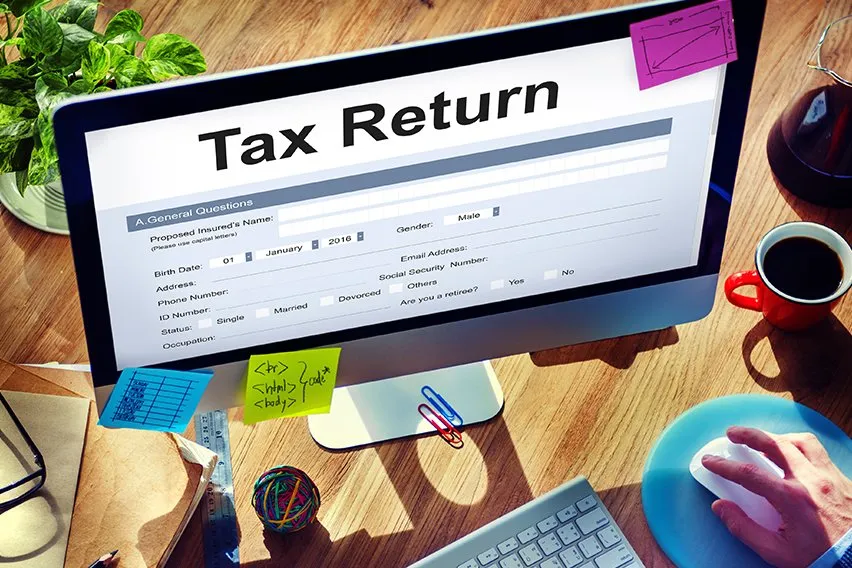Freelancers should track all income and expenses meticulously. Use tax software or hire a professional for accurate filing.
Freelancing offers flexibility and independence, but it also comes with tax responsibilities. Proper tax filing is crucial for avoiding penalties and maximizing deductions. Freelancers must stay organized throughout the year by keeping detailed records of all income and expenses. This can simplify the tax filing process and ensure compliance with tax laws.
Using reliable tax software or consulting a tax professional can help in accurately calculating tax liabilities and identifying eligible deductions. By staying proactive and informed, freelancers can manage their tax obligations efficiently, ensuring financial stability and peace of mind.
Organizing Financial Records
Keeping financial records organized is key for freelancers. This helps during tax season. You need to track income and document expenses. Below are tips to make this task easier.
Tracking Income
Freelancers often have multiple income sources. Use spreadsheets or software to record earnings. This makes it easier to track payments.
- Record each payment as soon as you receive it.
- Include details like the date, amount, and client name.
Review your income records monthly. This ensures nothing is missed. You can spot any discrepancies easily.
Documenting Expenses
Freelancers have many deductible expenses. Keep a record of every business expense. Use categories to organize these expenses.
- Office supplies: Pens, paper, and printer ink.
- Software: Subscriptions, apps, and tools.
- Travel: Flights, hotels, and meals.
Save receipts and invoices for each expense. Digital copies are acceptable. Use folders or apps to keep them organized.
| Expense Category | Examples |
|---|---|
| Office Supplies | Pens, paper, ink |
| Software | Subscriptions, tools |
| Travel | Flights, hotels |
Review your expense records regularly. This helps ensure all expenses are accounted for.

Credit: www.freshbooks.com
Understanding Tax Obligations
Freelancers have unique tax obligations. They need to understand these to avoid penalties. Let’s break down the key components: self-employment tax and quarterly estimated payments.
Self-employment Tax
Freelancers must pay self-employment tax. This includes Social Security and Medicare. The current rate is 15.3%. This tax covers both employer and employee portions. Here’s a breakdown:
| Tax Type | Percentage |
|---|---|
| Social Security | 12.4% |
| Medicare | 2.9% |
| Total | 15.3% |
Calculate your net earnings. Then apply the 15.3% tax rate. This ensures you set aside enough money.
Quarterly Estimated Payments
Freelancers must make quarterly estimated payments. This prevents a large tax bill. The IRS expects four payments a year:
- April 15
- June 15
- September 15
- January 15
Calculate your estimated tax for the year. Divide this by four. Pay this amount each quarter.
Use IRS Form 1040-ES to calculate and pay. This helps you avoid penalties and interest.
Stay on top of your tax obligations. Understand self-employment tax and quarterly payments. This will keep your finances in order.
Maximizing Deductions
Filing taxes as a freelancer can be daunting. The good news is that you can maximize your deductions. This can help reduce your taxable income. Here are some key areas where you can save money.
Home Office Deduction
Do you work from home? You can claim a home office deduction. This deduction is for a dedicated workspace. The space must be used exclusively for business.
Calculate your home office deduction by measuring the workspace. Divide this by the total square footage of your home. This will give you the percentage of your home used for business.
| Home Office Expense | Deductible Percentage |
|---|---|
| Rent or Mortgage Interest | Calculated Percentage |
| Utilities | Calculated Percentage |
| Home Insurance | Calculated Percentage |
Business Supplies And Equipment
Keep track of all business supplies and equipment. These can be deducted. This includes items like computers, software, and office supplies.
Maintain a list of everything you buy for your business. This makes it easier when tax time comes. Here is a simple list of deductible items:
- Computers and Laptops
- Software
- Office Supplies
- Printers and Ink
Some equipment must be depreciated over time. This means you can’t deduct the full cost in one year. Check the IRS guidelines for more details.

Credit: www.hiveage.com
Leveraging Retirement Contributions
As a freelancer, maximizing your tax benefits is crucial. One powerful strategy is leveraging retirement contributions. This can reduce your taxable income while securing your financial future. Here, we explore two excellent options: Traditional IRA and SEP IRA.
Traditional Ira
A Traditional IRA offers a simple way to save for retirement. Contributions are tax-deductible, reducing your taxable income. This can be a significant benefit during tax season. Here are some key points:
- Contribution limit for 2023: $6,500 (under 50), $7,500 (50 and over).
- Withdrawals after age 59½ are taxed as regular income.
- Early withdrawals may incur a 10% penalty.
Consider setting up automatic contributions. This ensures consistent savings and maximizes tax benefits.
Sep Ira
A SEP IRA is ideal for freelancers with higher income. It allows for larger contributions, which can significantly lower your taxable income. Key features include:
- Contribution limit for 2023: Up to 25% of net earnings, max $66,000.
- Contributions are tax-deductible.
- Withdrawals after age 59½ are taxed as regular income.
- Early withdrawals may incur a 10% penalty.
The SEP IRA offers flexibility. You can adjust contributions based on your income each year.
| Plan | Contribution Limit | Tax Benefits | Early Withdrawal Penalty |
|---|---|---|---|
| Traditional IRA | $6,500 (under 50), $7,500 (50+) | Tax-deductible contributions | 10% penalty before 59½ |
| SEP IRA | 25% of net earnings, max $66,000 | Tax-deductible contributions | 10% penalty before 59½ |
Both plans offer substantial tax advantages. Choose the one that fits your financial situation best. Start early and make the most of these benefits.
Health Insurance Deductions

As a freelancer, managing health insurance costs can be challenging. Fortunately, there are tax deductions available to ease this burden. Understanding these deductions can save you money and reduce your taxable income. Below, we’ll explore some key areas where freelancers can benefit from health insurance deductions.
Self-employed Health Insurance Deduction
If you pay for your own health insurance, you might qualify for the Self-Employed Health Insurance Deduction. This deduction allows you to deduct the premiums you pay for yourself, your spouse, and your dependents.
To qualify, you must not be eligible for employer-sponsored health insurance. You can claim this deduction on Form 1040. It can lower your adjusted gross income.
Health Savings Accounts
A Health Savings Account (HSA) is a great tool for freelancers. It allows you to save money tax-free for medical expenses.
To open an HSA, you need a high-deductible health plan. Contributions to an HSA are tax-deductible, and withdrawals for qualified medical expenses are tax-free.
Here’s a quick look at some HSA benefits:
- Tax-deductible contributions
- Tax-free withdrawals for medical expenses
- Funds roll over year to year
For 2023, the HSA contribution limits are:
| Coverage Type | Contribution Limit |
|---|---|
| Individual | $3,850 |
| Family | $7,750 |
If you’re 55 or older, you can make an additional catch-up contribution of $1,000.
Utilizing Professional Services
Filing taxes as a freelancer can be challenging. Utilizing professional services can ease the process. Below are key ways to benefit from professional help.
Hiring An Accountant
An accountant can simplify your tax filing process. Here are some benefits:
- Expert Advice: Accountants understand tax laws and regulations.
- Time-Saving: They handle paperwork and calculations.
- Maximize Deductions: They identify deductions you may miss.
- Accuracy: Accountants reduce the risk of errors.
Accountants can handle complex financial situations. They offer peace of mind during tax season.
Using Tax Software
Tax software is a great tool for freelancers. Here are its benefits:
- Cost-Effective: Cheaper than hiring an accountant.
- User-Friendly: Simple interfaces guide you through the process.
- Automated Calculations: Reduces manual errors.
- Quick Filing: E-file your taxes easily.
Tax software often includes customer support. It helps answer your tax questions quickly.
| Service | Pros | Cons |
|---|---|---|
| Accountant |
|
|
| Tax Software |
|
|
Staying Updated On Tax Laws
Freelancers must stay updated on tax laws. This ensures they file correctly. Tax laws change often, impacting earnings and deductions. Knowing the latest laws helps avoid penalties. Let’s explore key areas to focus on.
Changes In Tax Legislation
Tax laws can change yearly. New rules affect how you report income. Deductions may also change. Stay informed to maximize your tax benefits. Use reliable sources for updates.
| Year | Major Changes |
|---|---|
| 2021 | Home office deduction changes |
| 2022 | New self-employment tax rules |
Follow tax news websites for the latest updates. Subscribe to tax newsletters. They provide timely information on changes.
Impact On Freelancers
Tax changes impact freelancers directly. They affect income reporting. New laws can change deduction limits. This influences net income. Understanding these changes is crucial.
Freelancers must adapt quickly. They need to adjust their records. Keeping receipts and invoices is essential. It helps in claiming deductions. Here are some tips:
- Keep detailed records of expenses
- Use accounting software for tracking
- Consult a tax professional regularly
Being proactive helps avoid tax issues. Preparing ahead ensures smooth filing. Stay informed and stay compliant.

Credit: blog.turbotax.intuit.com
Frequently Asked Questions
How Do I File My Taxes As A Freelancer?
To file taxes as a freelancer, track income and expenses, use IRS Form 1040, and attach Schedule C. Pay quarterly estimated taxes. Consider consulting a tax professional.
How Much Money Should I Put Aside For Taxes As A Freelancer?
Set aside 25-30% of your income for taxes as a freelancer. This covers federal, state, and self-employment taxes.
How To Avoid Taxes As A Freelancer?
Avoiding taxes is illegal. Instead, focus on legal tax reduction strategies. Track expenses, claim deductions, and consult a tax professional.
Do Freelancers Get Tax Breaks?
Yes, freelancers can get tax breaks. They can deduct business expenses like home office costs, equipment, and internet fees.
Conclusion
Mastering tax filing as a freelancer can feel overwhelming, but it’s manageable with the right tips. Stay organized, track expenses, and consult a tax professional if needed. These steps will help you avoid stress and maximize your deductions. Keep learning and adapting to ensure your freelance business thrives.

